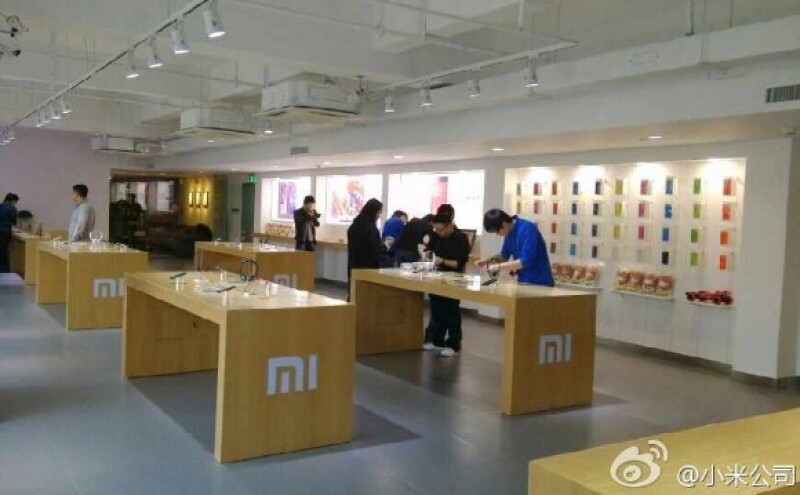
|
Xiaomi has grown to become China's largest smartphone brand in just four years. Picture of the company's Shanghai store courtesy of Xiaomi's Weibo |
Earlier this week, the Delhi High Court handed down an ex parte injunction against Chinese mobile device manufacturer Xiaomi, the world’s third biggest shipper of smartphones after Samsung and Apple. According to a copy of the order obtained by SpicyIP, Ericsson is asserting patents covering three technology standards:
Patents IN203034, IN203036, IN234157, IN203686 and IN213723 are part of the AMR codec, an audio compression format used in cell phones;
Patents IN229632 and IN240471 are part of the 3G standard, and
IN241747 is part of the EDGE data-transmission standard.
Justice GP Mittal granted the injunction, noting that Ericsson had contacted Xiaomi to discuss a licence for the patents, but Xiaomi appears to have moved forward in entering the market without securing a licence. Justice Mittal also found that the Ericsson made out its prima facie case for an interim injunction and that the balance of interests is in its favour as it would otherwise suffer irreparable injury.
Under the order, Xiaomi is barred from manufacturing, importing, selling or advertising the allegedly infringing products. Customs is also ordered to stop shipments of any covered products. In addition, Xiaomi is ordered to provide information regarding revenue earned and the volume of sales of products that may be covered by the patents.
In addition, the court also granted Ericsson’s request for an inspection of Xiaomi’s premises to obtain evidence.
According to news reports, Xiaomi had not received notice of the order as of today.
A familiar tactic
Ericsson’s approach in this case is similar the actions it took against India handset manufacturer Micromax last year. In that dispute, Ericsson also secured an ex parte injunction at the outset. The injunction in that dispute similarly involved patents essential to the AMR, EDGE and 3G standards.
In Ericsson-Micromax matter, the parties came to an interim agreement allowing Micromax to continue selling the covered products in exchange for it agreeing to make interim royalty payments to the court. It remains whether to be seen whether Xiaomi and Ericsson will make a similar agreement.
The issue of whether to grant injunctions when standards-essential patents involved is one that many countries are struggling with, with some commenters suggesting that SEPs involving a FRAND commitment should never be the basis of an injunction absent bad faith by the potential licensee.
Shamnad Basheer at SpicyIP takes issue with the injunction granted against Xiaomi and several other injunctions granted by Indian courts. In particular, he notes that where the SEP holder has made a FRAND commitment and the only dispute is the royalty rate itself, there is no irreparable damage as required for an interim injunction.
The perils of leaving home
Xiaomi’s patent troubles in India may be a sign of further troubles to come in its plan to grow its business beyond China, where it is already the largest smartphone maker by shipment. Despite the rapid growth of Chinese companies in catering to its domestic customers, Chinese brands are only beginning to make inroads into markets abroad.
Some sceptics suggest that while Chinese heavyweights such as ZTE, Huawei and Lenovo have had success breaking into international markets, they are the exception rather than the rule. While these three have substantial patent filings abroad (last year, ZTE and Huawei ranked second and third in PCT filings respectively, while Lenovo has among other things the patents it acquired when it purchased IBM’s PC business), Xiaomi has just 15 granted patents listed on SIPO’s website. According to a USPTO search, Xiaomi is named as the assignee in one design patent and one invention patent, while it is listed as the applicant on just six granted patents on Espacenet.
In fact, despite Xiaomi’s explosive growth (recent fundraising suggests that the company, which started in 2010, may be worth $40 to 50 billion), there is concern whether it can grow beyond the Chinese market because its IP-light strategy that works domestically may have problems in developed markets. The issue may extend beyond Xiaomi’s small patent portfolio, as some commenters have noted the company’s apparent fondness for both product and store designs that are similar to Apple’s.
CS Vaidyanathan, Senior Advocate, Prathiba M Singh and Singh & Singh are representing Ericsson in this matter. Prathiba Singh is also representing Ericsson in its dispute with Micromax.









